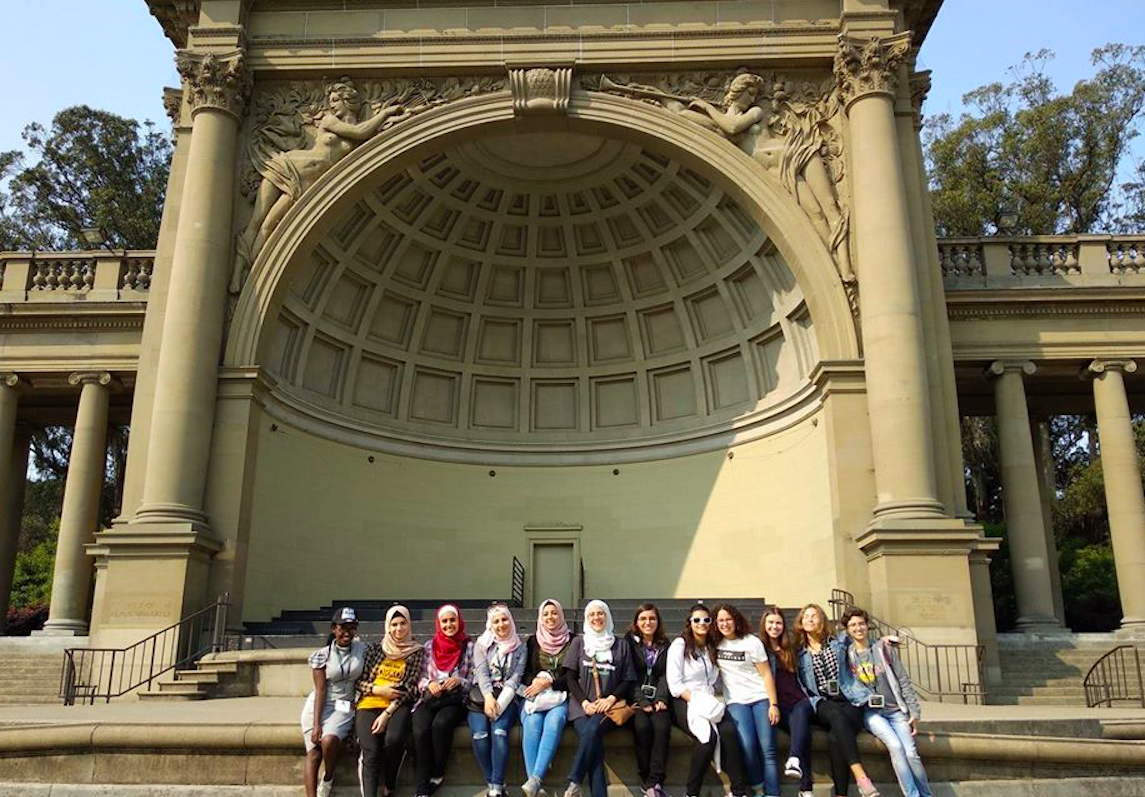
Teaching girls how to say hello to Harry Potter through code sounds like something Hermione Granger would do at Hogwarts. But it’s part of the curriculum for high school girls from more than 27 countries who participate in WiSci (short for Women in Science) STEAM Camps (STEAM, often referred to as STEM, stands for Science, Technology, Engineering, Arts & Design, Mathematics) each year.
A global public-private partnership boosting STEAM opportunities worldwide
Funded by the U.S. Department of State and run by World Learning, WiSci operates through a public-private partnership with Google, NASA, Intel, Microsoft, the American Society for Microbiology and the United Nations Foundation’s Girl Up. The two-week, all-expense-paid camps provide girls ages 15-18 with a cross-cultural experience where they learn from women in STEAM from participating organizations.
At last week’s 3BL Forum, Jim Thompson, director of private engagement within the Office of Global Partnerships at the U.S. Department of State, shared how the program is helping keep girls focused on science, technology, engineering and mathematics throughout high school and into college.
To date, the program has reached more than 600 girls and young women at camps held in nearly a dozen countries, including the United States, Ethiopia, Namibia, Estonia and Peru. Through hands-on, girl-centered instruction, participants learn to value taking risks, bounce back after failing and build the reliance to keep trying again.
After camp is over, participants are expected to take what they’ve learned back home and share it with their communities through presentations, workshops, science fair activities and in the classroom. According to Girl Up, previous WiSci campers have started science and coding clubs at schools, have remained in contact with mentors they met at camp and have continued working on projects begun at the camp with girls they met from other countries. In addition, of the past campers who are now enrolled in college, 78 percent are studying STEAM subjects.
STEAM Camps offer valuable employee engagement opportunities
According to Thompson, it’s not just the girls who benefit from the camp experience – so do the professionals from sponsoring organizations who volunteer to teach and mentor girls.
“It’s a great way for employees to engage,” said Thompson, addressing 3BL Forum attendees.
A common theme among speakers at the 3BL Forum last week was the growing desire of employees – especially millennials and Gen Zers – to be part of an organization that shares their values and provides them with opportunities to give back. And linking volunteer engagements to an organization’s core mission just makes sense.
Instructors from NASA at WiSci camps, for example, have taught girls JavaScript programing using satellite data visualization tools like the Google Earth Engine. Google employees have highlighted how they use technology to make a difference in people’s lives, including the company’s TalkBack app for vision-impaired Android users and a smart spoon designed for people with hand tremors. They applied the learning by helping girls build their own apps that take accessibility into account. And volunteers from Intel have leveraged experiences from their daily jobs to teach girls about robotics and artificial intelligence (AI).
For the sponsors of WiSci, it’s a win-win-win: They are helping to bridge the technology gender gap, they are creating a pipeline of skilled future workers and they are providing a rich engagement experience for their employees. And that is something that Hermione would definitely raise her wand for.
TechGirls (U.S. Department of State)/Facebook

Maggie Kohn is excited to be a contributor to Triple Pundit to illustrate how business can achieve positive change in the world while supporting long-term growth. Maggie worked for more than 20 years at the biopharma giant Merck & Co., Inc., leading corporate responsibility and social business initiatives. She currently writes, speaks and consults on corporate responsibility and social impact when she is not busy fostering kittens for her local animal shelter. Click here to learn more.














